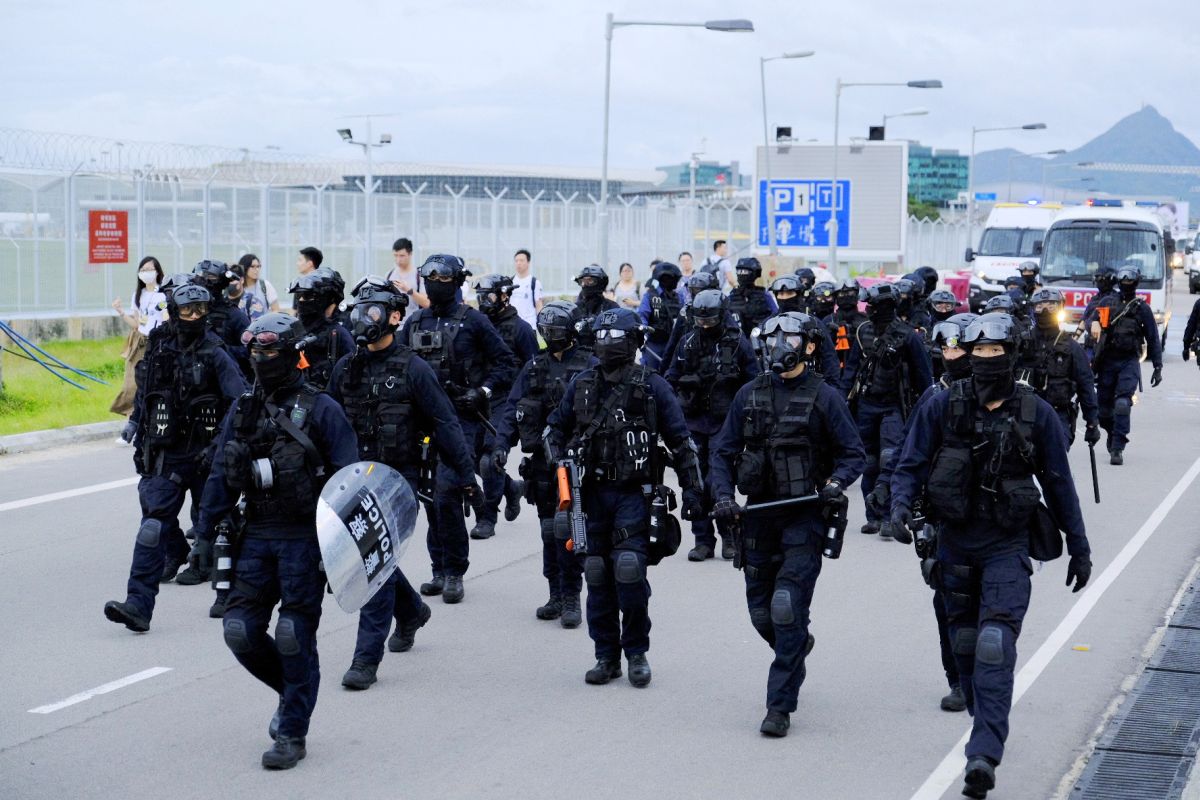US pauses aid to Ukraine, say reports
US President Donald Trump has paused all aid to Ukraine till as much time as it takes to determine President Volodymyr Zelensky's commitment to ending the war with Russia,
The Hong Kong government said in a statement on Thursday that the “degree and extent of violence committed by radical protesters” in the city was “unprecedented”.

Hong Kong police conduct a dispersal operation at around 5 p.m. outside the Hong Kong International Airport in south China's Hong Kong (File Photo: IANS)
Hong Kong on Thursday hit back at the US State Departments report that highlighted allegations of “police brutality” and other human rights issues, stressing that the city’s embattled police force has been dealing with unprecedented protest violence.
Earlier on Wednesday, the State Department issued its annual report about human rights situations in mainland China, Hong Kong, and Macau, said the South China Morning Post (SCMP) newspaper.
Advertisement
According to the report, “From June to (the) year’s end, Hong Kong experienced frequent protests, with some exceeding more than one million participants. Most protesters were peaceful, but some engage in violence and vandalism.
Advertisement
Demonstrations in Hong Kong began in June following a controversial extradition bill, already withdrawn by the government, but have mutated into a movement seeking to improve Hong Kong’s democratic mechanisms and safeguard the region’s partial autonomy from Beijing.
“Significant human rights issues included police brutality against protesters and persons in custody; arbitrary arrests; substantial interference with the rights of peaceful assembly and freedom of association; and restrictions on political participation.”
In response to that, the Hong Kong government said in a statement on Thursday that the “degree and extent of violence committed by radical protesters” in the city was “unprecedented”.
Earlier this month, Hong Kong police said that they had arrested 115 people after a night of chaos that marked the first major outbreak of anti-government protest violence since the start of the coronavirus crisis in the city.
The incident in Mong Kok took place after about 100 protesters gathered to block Nathan Road, marking six months since major clashes on August 31, 2019.
Last month, a popular slogan of Hong Kong’s months-long anti-government protests was spray-painted on the wall outside one of the Chinese Army’s bases in the city.
The eight words in Chinese – “Liberate Hong Kong; Revolution of our times” – were found daubed on the external walls of Gun Club Hill Barracks.
The 11-hectare military site is one of the barracks occupied by China’s People’s Liberation Army since the transfer of sovereignty of Hong Kong from Britain on July 1, 1997.
Hong Kong’s protests are largely leaderless and organised online. They were initially sparked by a now-abandoned attempt to allow extraditions to the mainland but have since morphed into a popular revolt against Beijing’s rule.
In 2018, the Hong Kong government had disqualified the candidacy of another pro-democracy activist, Agnes Chow, for the Legislative Council by-election in March of the same year due to her stance on advocating self-determination for the former British colony.
The controversial China extradition bill was withdrawn in early September but the movement has morphed into a wider campaign for greater democracy and against alleged police brutality.
Advertisement